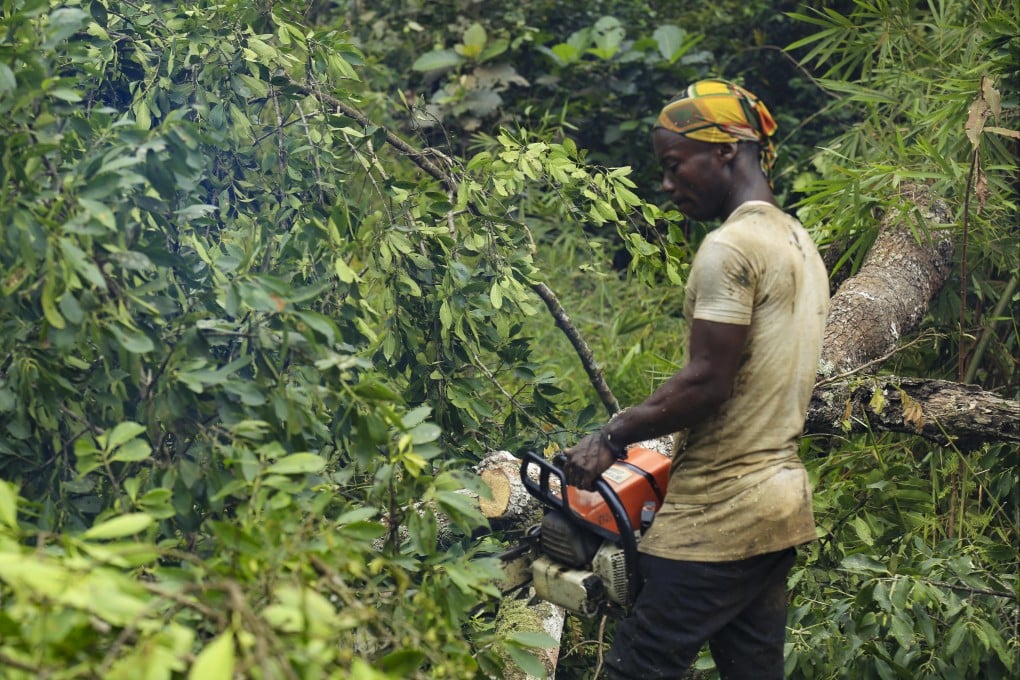Can China help save Gabon’s giant forests from illegal logging?
- Chinese companies are major players in the Central African nation’s timber industry
- Conditions have changed dramatically since the two countries signed a deal to promote sustainable forestry, minister says

When the value of each of the hundreds of the containers was added up, the total came to about US$252 million.
The containers seized in the Gabonese capital of Libreville in early 2019 held kevazingo, a rare type of hardwood that can take of hundreds of years to grow.
Kevazingo timber is used to make high-end furniture that can sell for as high as US$1 million but Gabon banned the logging and export of the timber in 2018 to protect it from extinction.
The illegal cargo seized in Libreville was found at the depots of two Chinese-owned companies, according to Enact, or Enhancing African Capacity to Combat Transnational Organised Crime.
The scandal led to the suspension and sacking of government officials, and highlighted the role of Chinese players in the illegal trade.
But was also followed by the signing of an agreement with China that some say could be the key to the timber’s future.